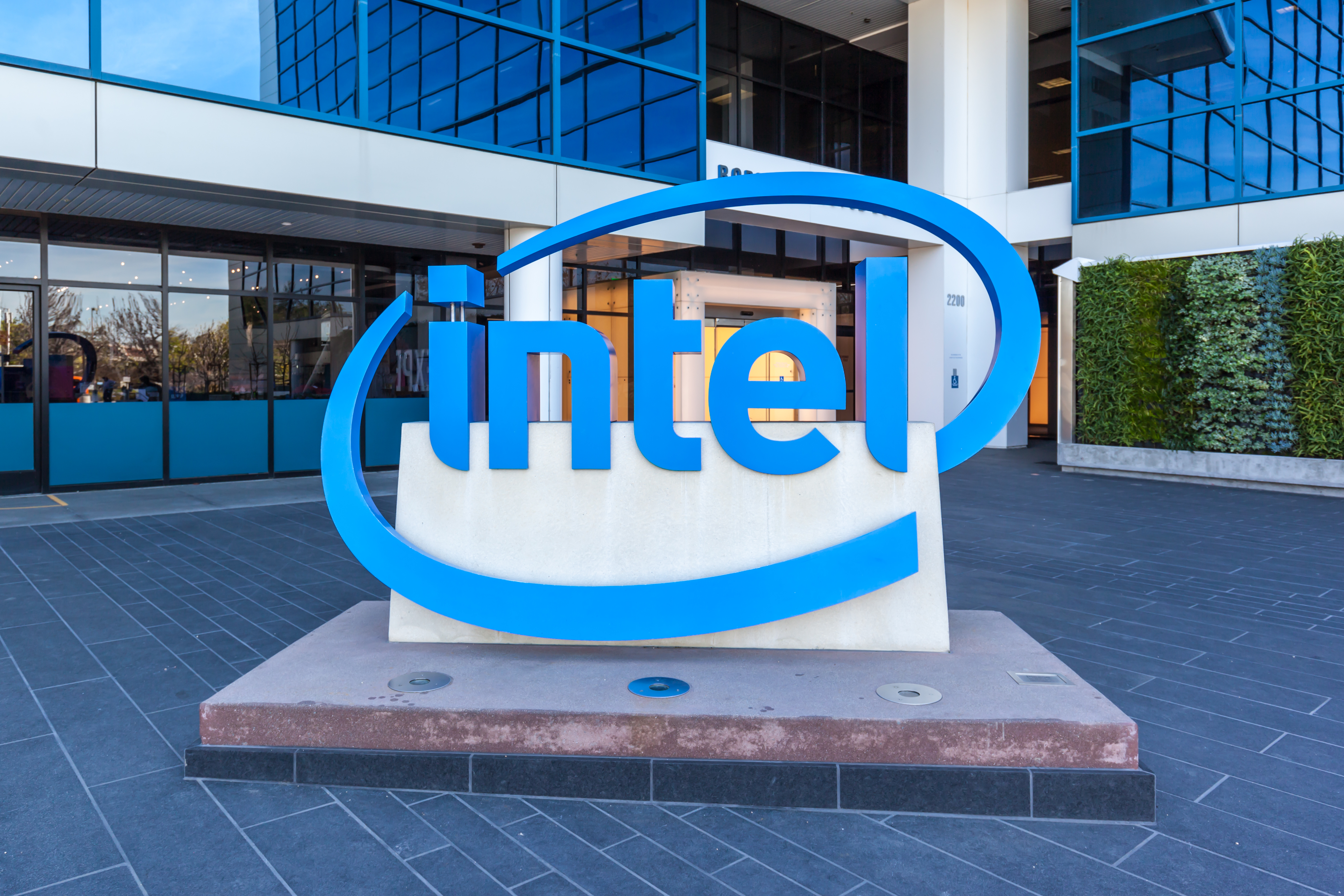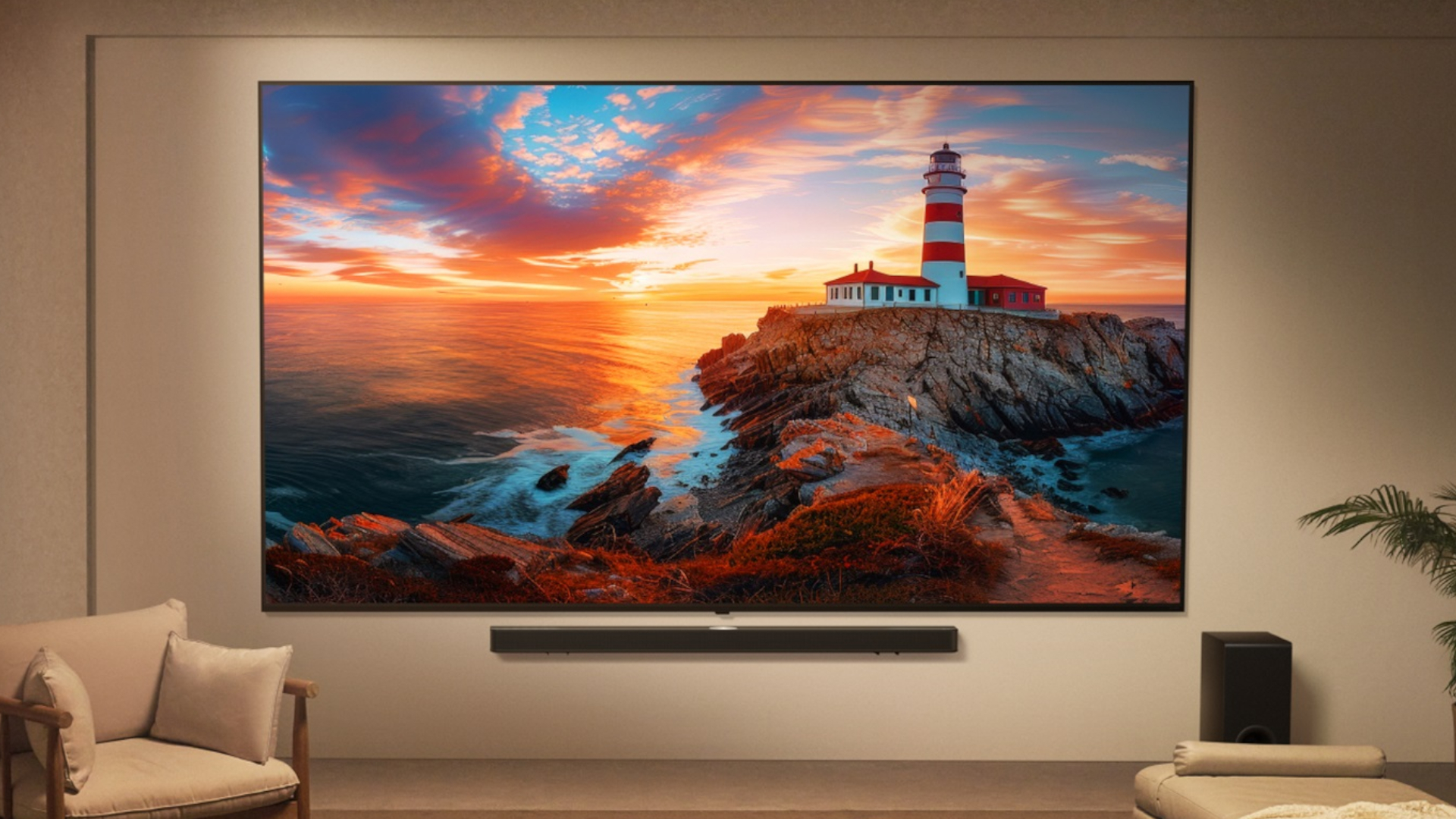Intel could beat AMD Ryzen on gaming performance — here's how
Intel claims its Core i7-10700K beats AMD's Ryzen 9 3900XT in gaming performance and value

Not one for playing the wallflower, Intel has come out with a pretty hefty claim that its Core i7-10700K desktop processor is better for gamers than AMD’s Ryzen 9 3900XT.
At an APAC region presentation attended by WCCFtech, Intel claimed that in “real-world” performance benchmarks, specifically gaming, its quad-core, 16-thread CPU beats AMD’s 12-core, 24-thread processor. And Intel reckons its $387 slice of silicon is better value than the $499 Ryzen 9 3900XT; that’s going by launch prices rather than retail prices at the moment.
- Everything we know about Intel Tiger Lake
- Here's what we know about the Nvidia GeForce RTX 3080
- Plus: PS5 and Xbox Series X graphics revealed in stunning new video
Intel made such a claim by using the Core i7-10700K in a machine with 16GB of RAM and a GeForce RTX 2080 Ti, then running a suite of 30 games at 1080p resolution. It then claimed that the performance its chip yielded was equal to or better than the Ryzen 9 3900XT in 24 of the 30 games.
For example, it claimed 23 percent more performance in Total War: Warhammer II and 17 percent more performance in League of Legends. Overall, the Core i7 chip was supposedly faster by more than three percent in 12 games and roughly equal to the Ryzen 9 CPU in a further 12 titles.
- Use a gaming VPN to eliminate throttling and lag
Getting to the core of performance
It’s worth contextualising all this. For a start, we don’t know what type of motherboard the CPUs were running on. It could be that the Core i7-10700K was using a high-end Intel motherboard, whereas the Ryzen 9 3900XT might have made do with a lesser motherboard, given both chips usd different CPU sockets and thus require different motherboards.
Secondly, the Core i7-10700K has a top single-core clock speed of 5.1GHz, whereas the Ryzen 9 3900XT runs up to 4.7GHz. While there are games and programs that can take advantage of the extra cores the Ryzen 9 has, raw single-core clock speed is often king in many games. So the Core i7-10700k was going to be an obvious winner.
However, a 23 percent hike in performance in a game like Total War: Warhammer II only results in an extra few frames per second. For some gamers that might be exactly what they're after, but for others, the real-world difference is arguably negligible.
Sign up to get the BEST of Tom's Guide direct to your inbox.
Get instant access to breaking news, the hottest reviews, great deals and helpful tips.
But there’s no debate that the Core i7-10700K is cheaper than the Ryzen 9 3900XT. So if it’s only gaming you’re after and you only have the choice between those two chips, then the Core i7 would be the one to go for.
However, there are plenty of people who use their gaming PCs for more than just playing games. Some use such machines for video editing, where there are programs like Premier Pro that can take advantage of the extra cores a Ryzen 9 has to offer. And some gamers like to stream their gaming exploits at the same time as playing, and having extra cores to offload a stream onto could justify the higher price of the AMD CPU.
Our sibling site TechRadar also broke down the concept of value that Intel was claiming. While the Core i7-10700K offers more bang for the buck in gaming performance compared to the Ryzen 9 3900XT, TechRadar pointed out that the octa-core Ryzen 7 3700X offers performance that’s only a little behind the 3900XT and thus the Core i7-10700K, yet costs $290. That makes it notably cheaper than Intel’s chip and arguably better overall value.
In short, a lot of these claims are subjective. For a while, Intel always offered the more expensive CPUs, so it’s good to see it keen to compete on price and take value into consideration.
When it comes to buying a PC, such claims can make things confusing. So we suggest you check out our list for the best gaming PCs. And when it comes to making a gaming PC yourself, it’s worth taking the time to really think about what you plan to use the PC for beyond gaming before you opt for a chip from either Intel or AMD.
Roland Moore-Colyer a Managing Editor at Tom’s Guide with a focus on news, features and opinion articles. He often writes about gaming, phones, laptops and other bits of hardware; he’s also got an interest in cars. When not at his desk Roland can be found wandering around London, often with a look of curiosity on his face.

